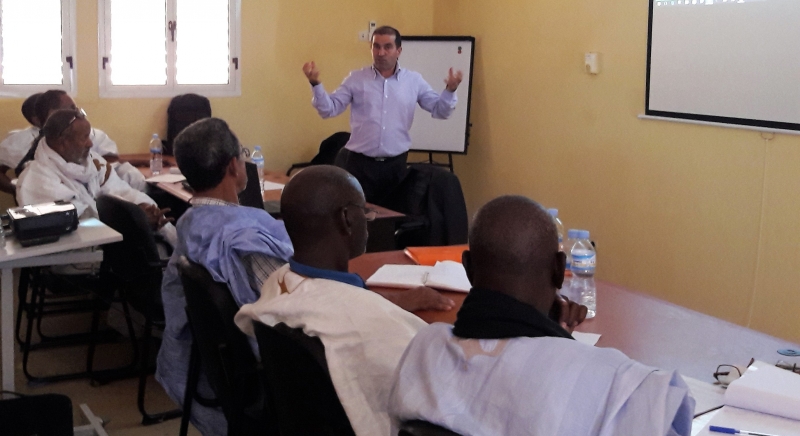Three Territorialized Sector Action Plans to Support the Operationalization of Training Reform in Mauritania

The Programme Contributing to the Operationalization of Reforms (PROCOR) is the 3-year planning document the IIEP-Pôle de Dakar will support via PEFOP to accompany the implementation of vocational education reforms, to improve the efficiency and effectiveness of projects and programmes, either current or undergoing design. This support is methodological in nature, taking the form of expertise mobilization, at the national and international levels, according to required profiles.
Starting with the endorsed results of the obstacles analysis, (public and private) vocational education players in Mauritania, with the support of IIEP-Pôle de Dakar experts, identified the actions to execute to progress towards the operationalization of the reforms of their training apparatus.
To do this, players firstly designed the structure of this programme in line with the broad economic orientations of the country, to enable a rational prioritization of the obstacles to be lifted. Several options of potential structures were studied, to choose the most appropriate to later launch the required actions. Mauritanian stakeholders deemed it most relevant to organize the PROCOR into several specific action plans, combining an economic sector with a geographic area(s) where its projects and programmes are concentrated: they labeled these Territorialized Sector Action Plans (PASET).
Next, based on a mapping exercise of the relevant projects and programmes, national priorities in terms of vocational education development and the leading sectors in terms of the professional integration of youth, three economic sectors were selected (construction, fisheries and agro-pasture) and intersected with three respective geographic areas, namely Nouakchott, Nouadhibou and the river valley.
Two participatory workshops were necessary, as well as the complementary consistency-check and fine-tuning of the proposed actions by the IIEP-Pôle de Dakar/PEFOP team in between, to identify the priority obstacles and actions/activities deemed necessary to lift each constraint, and present and endorse the resulting action plans (PASET).
The broad lines of these action plans can be summarized as:
- The definition and adoption of a common vision of public-private partnerships among vocational education players;
- Strengthening the capacities of public and private actors involved in the identification of labor market needs, for a better definition of training supply;
- The elaboration of tools and assistance to enable the involvement of professionals in the certification processes of different sectors; and
- The development of a mechanism to validate learning outcomes with experience.
The PASETs were launched in their respective regions in November 2016. The launch days were the opportunity to share their content with a broad spectrum of players from the respective regions. Close to 50 stakeholders were met, belonging to training bodies, professional organizations, businesses and production units from each of the three chosen economic sectors, with the aim of encouraging ownership of each PASET at the regional level. Much as the further effort required for the PASETs’ implementation is significant, the launch days benefited from the remarkable participation of the Naval Academy and National Federation for the fisheries sector, of the National School for Agricultural Training and Sensitization and the federations for the agro-pasture sector, as well as the Mauritanian Management Association and Service Federation for the construction sector.
Thus, this programme now underway aims for a greater involvement of the professionals of the respective sectors in the design and implementation of training programmes, as well as in steering training systems for a better alignment of training supply with the economic sector’s needs in terms of skills.

